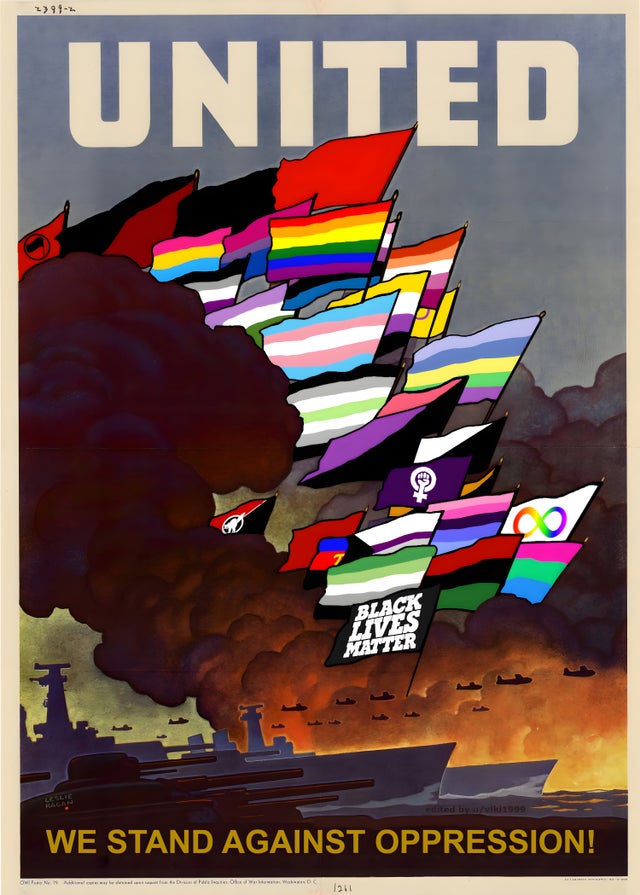
:foucault-shining:

:foucault-shining:

:foucault-shining:

:foucault-madness:

http://library.lol/main/784A4D178F690858F66331408070A498
gets terminal cancer after whistleblowing
:illuminati:
better if the tagline itself misspells it
I am once again begging people to learn how to spell bourgious
possibly to increase general passivity? weed can make it easier to just get home from work and sink into a bowl without ever reflecting on larger mechanisms, rinse and repeat until you die.
The first stage is a faithful image/copy, where we believe, and may even be correct to believe, that a sign is a "reflection of a profound reality" (pg 6), this is a good appearance, in what Baudrillard called "the sacramental order".
The second stage is perversion of reality, where we come to believe the sign to be an unfaithful copy, which "masks and denatures" reality as an "evil appearance—it is of the order of maleficence". Here, signs and images do not faithfully reveal reality to us, but can hint at the existence of an obscure reality which the sign itself is incapable of encapsulating.
The third stage masks the absence of a profound reality, where the sign pretends to be a faithful copy, but it is a copy with no original. Signs and images claim to represent something real, but no representation is taking place and arbitrary images are merely suggested as things which they have no relationship to. Baudrillard calls this the "order of sorcery", a regime of semantic algebra where all human meaning is conjured artificially to appear as a reference to the (increasingly) hermetic truth.
The fourth stage is pure simulacrum, in which the simulacrum has no relationship to any reality whatsoever. Here, signs merely reflect other signs and any claim to reality on the part of images or signs is only of the order of other such claims. This is a regime of total equivalency, where cultural products need no longer even pretend to be real in a naïve sense, because the experiences of consumers' lives are so predominantly artificial that even claims to reality are expected to be phrased in artificial, "hyperreal" terms. Any naïve pretension to reality as such is perceived as bereft of critical self-awareness, and thus as oversentimental.

Loving these bike posts.
Interesting idea. Wish cargo bikes were ubiquitous enough here to produce an affordable used market. As it is it's cheaper to buy a clunker car than a new cargo or ebike.
lol that's someone wearing an elon mask right? or it's edited

holy fuck that is chud levels of smoothbrain. wtf
Damn you're back. You've been sorely missed.
This isn't my opinion since I don't consider myself well-read enough to have one, but I've read some people say it's possible the USSR would have been invaded/destabilized sooner if they were more aggressive in exporting revolution, which IIRC is one of Trotsky's main deviations from Stalin (who still exported revolution to some degree, but was more careful about maintaining friendly relations with capitalist countries to allow trade and time for the USSR to industrialize). Happy to be corrected or learn some nuance if someone more educated wants to chime in.
Their "drive 5 miles for $2.50" business model doesn't tolerate slavery, but it does its best to reterritorialize labor relations into more exploitative wage slave structures.

face diaper more like face lingerie

A market economy requires a pool of unemployed workers who are ready to be hired to meet increased production demands. Within a capitalist society, these people are structurally competing with one another. The presence of these individuals guarantees lower labor costs (because workers are replaceable) and "naturally" disciplines the workers who have an incentive to keep their jobs and paychecks. Under normal conditions, the reserve army of labor is replenished by the very process of capital accumulation: in their competition to lower commodity prices, capitalist constantly seek out new technological innovation, which in turn expels a segment of the working class from the process of production. The reserve army is further replenished by mechanization, in which the process of production is simplified or automated, and skilled workers are made expendable.
- Clara Mattei, The Capital Order
Really liking this book so far. Quoted is a section near the beginning that effectively summarizes a Marxist concept in a very understandable way.

Super villain is overselling it

"50% of people who use landlines and trust robocallers and answer the phone at 12:00 to 4:00 PM and fill out surveys approve of Biden, MoE 5%"
:foucault-madness: